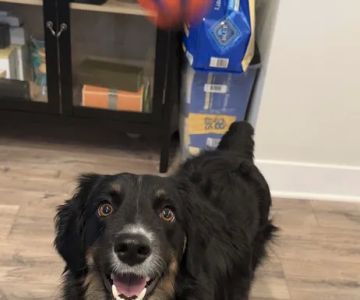Why Does My Pet Chew on Everything? Understanding Your Pet's Chewing Behavior
- Why Do Pets Chew on Everything?
- Common Causes of Chewing in Pets
- How to Prevent Excessive Chewing in Pets
- When to Seek Professional Help for Chewing
Why Do Pets Chew on Everything?
Pets, especially dogs and cats, are natural chewers. Chewing is a normal and instinctual behavior for many animals, but when it becomes excessive or problematic, it can lead to damage around the home and indicate an underlying issue. Understanding why your pet chews on everything can help you find solutions to prevent it from becoming a bigger problem.
Common Causes of Chewing in Pets
Chewing can be caused by a variety of factors, both physical and emotional. Here are some of the most common reasons your pet might be chewing on everything:
1. Teething
For puppies and kittens, chewing is often a response to the discomfort of teething. Just like human babies, young pets experience sore gums as their adult teeth emerge, and chewing helps relieve this pain. Providing appropriate chew toys can help alleviate this discomfort and save your furniture from being chewed up.
2. Boredom
Pets, especially those left alone for long periods, may chew on things out of boredom. Without sufficient physical and mental stimulation, pets may turn to chewing as an outlet for their pent-up energy. This behavior is particularly common in high-energy dogs and young animals.
3. Anxiety and Stress
Pets that experience anxiety, whether due to separation, changes in their environment, or loud noises, may chew on things to self-soothe. This can become a compulsive behavior if not addressed. Pets with separation anxiety often chew furniture or shoes when left alone.
4. Attention-Seeking Behavior
Sometimes, pets chew on everything simply because they want attention. If your pet notices that chewing results in a reaction from you, such as shouting or even laughter, they may continue to engage in the behavior as a way of getting your focus.
5. Health Problems
In some cases, pets may chew excessively due to underlying health issues. Dental problems, gastrointestinal discomfort, or even nutritional deficiencies can trigger chewing behavior. It’s important to monitor your pet’s health and consult a veterinarian if the chewing persists or is accompanied by other symptoms.
How to Prevent Excessive Chewing in Pets
While chewing is a natural behavior, excessive chewing on inappropriate objects can be problematic. Here are some tips to help manage and prevent destructive chewing:
1. Provide Appropriate Chew Toys
One of the best ways to prevent your pet from chewing on household items is to provide them with suitable chew toys. Choose toys that are durable and safe for your pet’s size and breed. For puppies, look for soft, rubber toys that are designed for teething. For adult dogs, consider tougher chew toys that can withstand stronger jaws.
2. Offer Mental and Physical Stimulation
Ensure your pet is getting enough exercise and mental stimulation. Regular walks, playtime, and interactive toys can help burn off excess energy and prevent boredom-related chewing. Puzzle feeders and treat-dispensing toys are great for engaging your pet’s brain and preventing chewing due to frustration or boredom.
3. Use Deterrent Sprays
For pets that are persistent chewers, using a safe, pet-friendly deterrent spray on furniture and household items can be effective. These sprays typically have a bitter taste that discourages chewing. Ensure that the deterrent is safe for your pet, and apply it consistently to encourage them to chew on their toys instead.
4. Create a Safe Space
If your pet chews due to anxiety, creating a safe space can help. Try to reduce stressors in their environment, such as loud noises, and consider crate training or using calming products like pheromone diffusers to help your pet feel more secure when left alone.
5. Redirect the Behavior
If you catch your pet in the act of chewing something they shouldn’t, redirect their attention to a chew toy or treat. Consistent redirection helps reinforce positive behavior and discourages chewing on inappropriate items. Remember to reward them when they chew on the right things.
When to Seek Professional Help for Chewing
If your pet’s chewing behavior continues despite your efforts, it may be time to consult with a veterinarian or professional trainer. Here are some signs that professional help may be needed:
1. Destructive Behavior
If your pet’s chewing is causing significant damage to furniture, shoes, or other valuable items, it might be time to seek professional guidance to curb the behavior and prevent further destruction.
2. Health Concerns
Excessive chewing accompanied by other symptoms, such as vomiting, weight loss, or lethargy, could indicate an underlying health problem. A veterinarian can assess your pet’s health and rule out medical causes for the behavior.
3. Behavioral Issues
If your pet’s chewing is linked to anxiety, stress, or compulsive behavior, a certified animal behaviorist or trainer can work with you to address these issues and help your pet develop healthier coping mechanisms.
Understanding why your pet chews on everything is the first step in addressing this behavior. Whether it's due to boredom, anxiety, or just the natural urge to chew, there are effective strategies to manage and reduce destructive chewing. For more guidance or if you suspect an underlying health issue, visit Hidden Brook Veterinary for expert advice and assistance.











